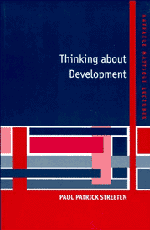FIFTH LECTURE
The Political Economy of Reform
Published online by Cambridge University Press: 05 February 2015
Summary
Introduction
Adjustment used to have a clear and narrow meaning. But gradually first growth, then poverty concerns, distribution, employment, public enterprises, the environment, women, and Uncle Tom Cobley and all, were creeping back in, until the term has become synonymous with development. Except that nobody will lay down his life for structural adjustment, or even salute the flag. Is there life after adjustment? You might think, at first, that life only begins after adjustment. But on reflection, you realize that all life is adjustment.
We have heard a lot about the need to get prices right, and to let the magic of the market work. But what Lance Taylor called Buchanan's heaven, or the combination of a weak, minimalist state and well working competitive markets does not exist. State minimalism and pricism do not go together. In South Korea and Taiwan the Invisible Hand is guided by a strong Visible Arm.
Another error is to think that the only thing that matters are macroeconomic policies. Of course, they are very important, but let us not forget in our enthusiasm for them that attention to projects and institutions is also very important. To overvalue the importance of a single component in a complex system (such as the exchange rate) can be worse than over-valuing the exchange rate.
- Type
- Chapter
- Information
- Thinking about Development , pp. 235 - 278Publisher: Cambridge University PressPrint publication year: 1995



